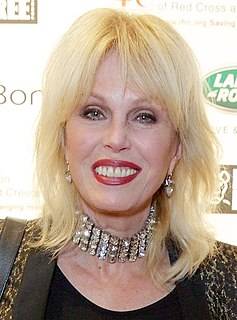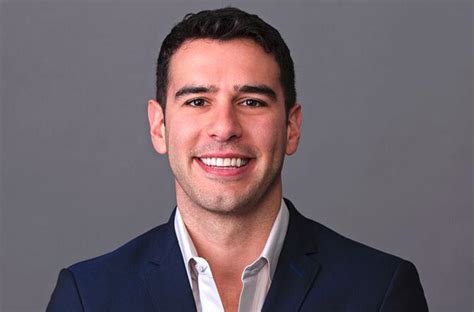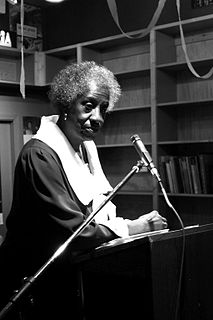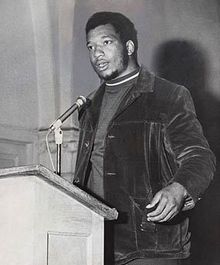A Quote by Joanna Lumley
There's an appetite for vigour in films. The camera loves a bit of movement. Movement is usually attached to younger people and men, and that's just the way it is. I think that it's a bitter pill to swallow, but it's a fact that there aren't going to be masses and masses of roles for older women because there isn't the audience for it.
Related Quotes
In less than a century we experienced great movement. The youth movement! The labor movement! The civil rights movement! The peace movement! The solidarity movement! The women's movement! The disability movement! The disarmament movement! The gay rights movement! The environmental movement! Movement! Transformation! Is there any reason to believe we are done?
The art of leadership is a serious matter. One must not lag behind a movement, because to do so is to become isolated from the masses. But one must not rush ahead, for to rush ahead is to lose contact with the masses. He who wished to lead a movement must conduct a fight on two fronts--against those who lag behind and those who rush ahead.
Ideally there should not be a men's movement but a gender transition movement; only the power of the women's movement necessitates the temporary corrective of a men's movement. And this creates a special challenge for men: There are few political movements filled with healthy people, yet few healthy changes have occurred without political movements.
It's true that in a lot of western feminist movements, you see women working singularly from men. Suffragettes and the women's rights movement in the 60s here, but when I think of the Islamic feminist movement, I think of a lot of men who are very much standing with the women. It really feels like in equal numbers. Women are catching up in the field because we were not given access to knowledge and encouraged into these studies and so these men are helping us and empowering us. They are men of conscience who are fed up with this assumption that they're entitled.
Broadcast TV has a very classy but old-fashioned way of doing television. That's what it's always going to be. But you've still got to introduce young talent and ideas and shows to the masses. That's the way you build a bigger and younger audience, introducing younger writers, comics, TV shows to viewers.
Movements are not radical. Movements are the American way. A small group of abolitionists writing and speaking eventually led to the end of slavery. A few stirred-up women brought about women's voting. The Populist movement, the Progressive movement, the anti-Vietnam War movement, the women's movement - the examples go on and on of 'little people' getting together and telling the truth about their lives. They made our government act.
Working in a situation with men and women, and seeing women take on roles equal to the roles taken by men made you understand that, "Hey, these people can do things too." And I think it made me and other people in the movement realize that we're living in a community of equals. And that among those equals, they have equal rights. And we ought to respect their rights if they respected ours.
If you just look at the number of roles for women versus the number of roles for men in any given film, there are always far more roles for men. That's always been true. When I went to college, I went to Julliard. At that time - and I don't know if this is still true - they always selected fewer women than men for the program, because there were so few roles for women in plays. That was sort of acknowledgment for me of the fact that writers write more roles for men than they do for women.
There has to be spiritual transformation among the masses, who have to be willing to recognize that their oppression is not a law of nature. That's what Latin American bishops were doing when they formed base communities. They were trying to get peasants to recognize that you can take your fate into your own hands. That's what the civil-rights movement did here. That's what the women's movement did.
We got to face some facts. That the masses are poor, that the masses belong to what you call the lower class, and when I talk about the masses, I'm talking about the white masses, I'm talking about the black masses, and the brown masses, and the yellow masses, too. We've got to face the fact that some people say you fight fire best with fire, but we say you put fire out best with water. We say you don't fight racism with racism. We're gonna fight racism with solidarity. We say you don't fight capitalism with no black capitalism; you fight capitalism with socialism.
I began to feel that my greatest sense of success would raise the level of masses of people, rather than the individual being accepted by the Establishment. So, this kind of personal thinking, combined with, say, even the little bit more radical thinking - because at one time the pacifist movement was a very radical concept.
It's true that there are younger people making films, and there are different kinds of films. This has created some attention in what's coming out of Greece, and people like to find a way to name this new ethnic cinema. It's not like there's a movement, or a common philosophy in making these films. They're just things that happened, and now people are paying attention to it.
My main aim in 'Gandhi' was to project him as the vanguard of non-violence. Nowhere in the world has a movement of non-cooperation sans violence received so much support from masses as Gandhi's movement in India did. He was, to a great extent, responsible for freeing his nation from the British Raj.




































